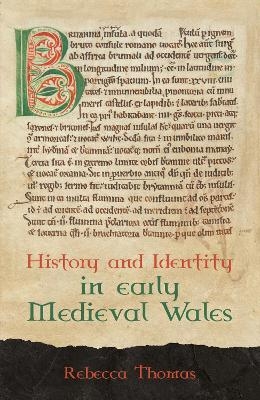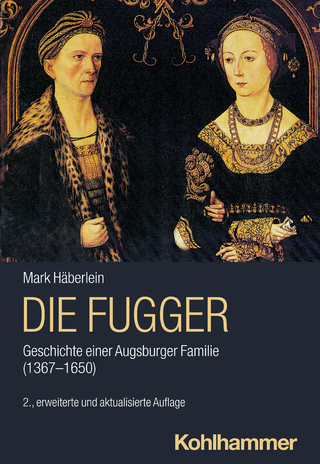
History and Identity in Early Medieval Wales
Seiten
2022
D.S. Brewer (Verlag)
978-1-84384-627-7 (ISBN)
D.S. Brewer (Verlag)
978-1-84384-627-7 (ISBN)
Crucial texts from ninth- and tenth-century Wales analysed to show their key role in identify formation.
WINNER OF THE FRANCIS JONES PRIZE 2022
Early medieval writers viewed the world as divided into gentes ("peoples"). These were groups that could be differentiated from each other according to certain characteristics - by the language they spoke or the territory they inhabited, for example. The same writers played a key role in deciding which characteristics were important and using these to construct ethnic identities. This book explores this process of identity construction in texts from early medieval Wales, focusing primarily on the early ninth-century Latin history of the Britons (Historia Brittonum), the biography of Alfred the Great composed by the Welsh scholar Asser in 893, and the tenth-century vernacular poem Armes Prydein Vawr ("The Great Prophecy of Britain"). It examines how these writers set about distinguishing between the Welsh and the other gentes inhabiting the island of Britain through the use of names, attention to linguistic difference, and the writing of history and origin legends. Crucially important was the identity of the Welsh as Britons, the rightful inhabitants of the entirety of Britain; its significance and durability are investigated, alongside its interaction with the emergence of an identity focused on the geographical unit of Wales.
WINNER OF THE FRANCIS JONES PRIZE 2022
Early medieval writers viewed the world as divided into gentes ("peoples"). These were groups that could be differentiated from each other according to certain characteristics - by the language they spoke or the territory they inhabited, for example. The same writers played a key role in deciding which characteristics were important and using these to construct ethnic identities. This book explores this process of identity construction in texts from early medieval Wales, focusing primarily on the early ninth-century Latin history of the Britons (Historia Brittonum), the biography of Alfred the Great composed by the Welsh scholar Asser in 893, and the tenth-century vernacular poem Armes Prydein Vawr ("The Great Prophecy of Britain"). It examines how these writers set about distinguishing between the Welsh and the other gentes inhabiting the island of Britain through the use of names, attention to linguistic difference, and the writing of history and origin legends. Crucially important was the identity of the Welsh as Britons, the rightful inhabitants of the entirety of Britain; its significance and durability are investigated, alongside its interaction with the emergence of an identity focused on the geographical unit of Wales.
Rebecca Thomas is a British Academy Postdoctoral Fellow at Cardiff University.
List of Maps
Acknowledgements
List of Abbreviations
Introduction
1. Names, Territories, and Kingdoms
2. Language
3. Origin Legends I: the Britons
4. Origin Legends II: Legitimate and Illegitimate Migration
5. Asser and the Origins of Alfred's Kingdom
Conclusions
Bibliography
Index
| Erscheinungsdatum | 12.04.2022 |
|---|---|
| Reihe/Serie | Studies in Celtic History |
| Zusatzinfo | 2 Maps |
| Verlagsort | Cambridge |
| Sprache | englisch |
| Maße | 156 x 234 mm |
| Themenwelt | Geisteswissenschaften ► Archäologie |
| Geschichte ► Allgemeine Geschichte ► Mittelalter | |
| ISBN-10 | 1-84384-627-6 / 1843846276 |
| ISBN-13 | 978-1-84384-627-7 / 9781843846277 |
| Zustand | Neuware |
| Informationen gemäß Produktsicherheitsverordnung (GPSR) | |
| Haben Sie eine Frage zum Produkt? |
Mehr entdecken
aus dem Bereich
aus dem Bereich
eine neue Geschichte des Mittelalters
Buch | Hardcover (2023)
C.H.Beck (Verlag)
CHF 53,20
Geschichte einer Augsburger Familie (1367-1650)
Buch | Softcover (2024)
Kohlhammer (Verlag)
CHF 47,60


